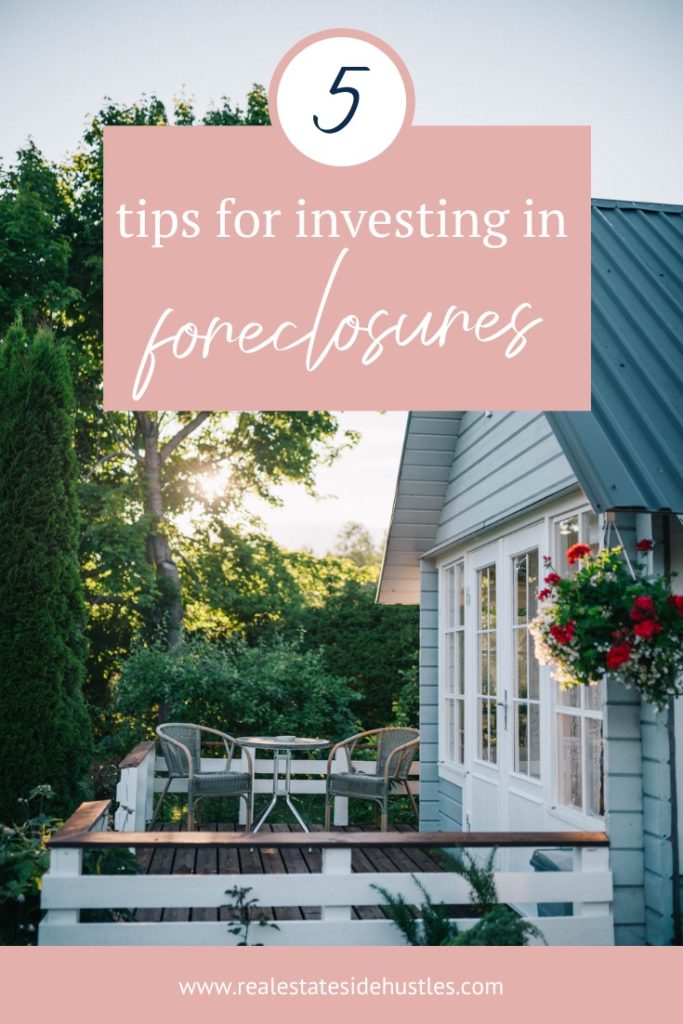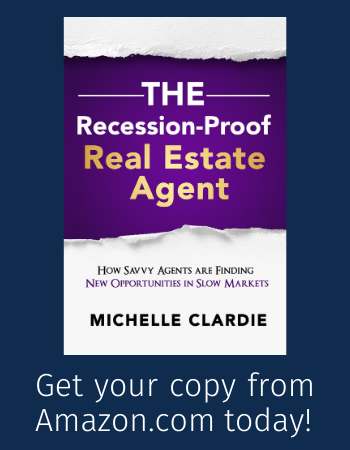Investing in real estate is perhaps our single favorite real estate side hustle, and investing in foreclosed homes can be one of the most lucrative real estate investment strategies available.
But how exactly do you go about investing in foreclosed homes? And how do you maximize your chances of success?
In this post, we’re taking a look at 5 quick tips for investing in foreclosed homes.
5 Tips for Investing in Foreclosed Homes
1. Know Your Market
As with literally any real estate decision, knowing the local market is the single most important factor in your future success.
On this site, we cater to real estate professionals looking to increase their real estate income. So if you’re already an agent, you already have a daily schedule that includes checking the hot sheets to keep up with the ever-changing real estate market.
For those who aren’t licensed in real estate yet…
What are you waiting for?
Real estate offers flexible hours, the ability to be your own boss, and unlimited income potential. And, in most states, it only takes a few months to earn your license (no college degree required). You just need to enroll in real estate courses with a state-approved real estate school. My recommendation is AceableAgent. AceableAgent has among the highest exam pass rates of any real estate school in the country, probably because test-prep is included in your coursework. And their courses are all designed so you can study from your phone or tablet whenever you have a few spare minutes to squeeze in a lesson. Oh, and they’re super affordable.
If AceableAgent isn’t yet available in your state, Real Estate Express is another excellent option.
After your coursework is completed, you’ll be ready to take your state exam. We have several tips for passing your exam on the first try, but you should know that many people need more than one attempt to pass. So don’t stress yourself out too much about the exam.
Understand Fair Market Value in Your Area
Pop quiz: Is $195 per square foot a good deal in your market? The only way to tell a good deal from a bad one is to know your market.
Now, if you’re new to real estate and you’re still learning about your market rates, your best bet is to learn how to do a CMA (Comparative Market Analysis) asap. CMAs use recent sales to indicate the fair market value for similar homes. The more CMAs you do, the more you’ll get to know your market. And soon you’ll know if a property is a good deal simply by a glance at the per-square-foot value.
This is particularly important when investing in foreclosed homes at auction. Knowing the correct market value will help you avoid overpaying because of a bidding war.
You should also know where your market’s going. If you have a bunch of foreclosures because your town lost a major employer and people are leaving your town for good, it’s probably not the best time to invest in real estate in that market.
2. Focus on Pre-Foreclosures
When you think of investing in foreclosed homes, you may imagine auctions on the courthouse steps. Or dealing with a bank to purchase an REO property (Real Estate Owned – these are the homes that go into the bank’s inventory to be sold by the REO department). And both of those can be great opportunities. But those are also more for sophisticated real estate investors.
If you’re new to investing in foreclosed homes, I recommend bypassing the complicated auction and REO processes by going the pre-foreclosure route. Pre-foreclosures are exactly what they sound like: properties that are about to be foreclosed on. Pre-foreclosure investing is typically cleaner and less risky than investing in foreclosures at auction.
But how do you find pre-foreclosures? Foreclosure.com is the best resource for locating distressed property like pre-foreclosures. It allows you to search for:
Foreclosure.com also offers a library of free articles to help you begin investing in foreclosed homes.
3. Turn Pre-Foreclosures into Listings!
As a real estate professional, you have a golden opportunity to help homeowners avoid foreclosure. And maybe earn a listing in the process.
Here’s what you do:
- Find pre-foreclosures on Foreclosure.com.
- Reach out to the homeowners to educate them on avoiding foreclosures. Offer to help them negotiate new loan terms with their lender.
- If you’re able to help the homeowners stay in their home, congratulations! You might not get an immediate commission, but those homeowners will rave about you to their friends and family, likely leading to multiple referrals.
- If you’re not able to help the homeowners stay in their home, perhaps you can help them avoid foreclosure by listing and selling their home before it’s foreclosed on. Maybe you just get the listing, or maybe it turns out to be the perfect property for you to invest in.
This strategy is especially useful in a recession when there are more homes in pre-foreclosure, but it can work in any market.
4. Know How to Secure Funding for Investing in Foreclosed Homes
Funding is a sticking point for most people investing in foreclosed homes. Let’s be honest: you’re probably not going to find a lender willing to give you a conventional loan to invest in a foreclosed home. But there are several creative financing options for those willing to look for them. Here are a few options:
Commercial Loans
Don’t be confused by the name; commercial loans aren’t loans specific to commercial properties. Commercial loans are typically used for short-term residential purchases (like a fix-and-flip). They’re provided by financial institutions, so you know they’re reputable. But they can have high interest rates (like over 30%!). They can also take a little time to fund. And they typically require a history of successful investments. So they’re not first-timer friendly.
FHA 203(K)
Part of the FHA program, FHA 203(k)s are specifically designed for homes needing extensive renovations. Being a government program, these loans are complex and take some time to fund. The plus-side is that the interest rates are low (typically only slightly higher than FHA loans) and the loan terms can go up to 30 years. These characteristics make an FHA 203(k) a good option for buy-and-hold investments.
Hard Money Loans
Hard money loans are issued by private individuals instead of financial or government institutions. These are a good option when you need money fast, but they can come with higher interest rates and shorter loan terms, meaning they probably only make sense for fix-and-flips.
Peer-to-Peer Loans
Like hard money loans, peer-to-peer lending (P2P) is funded by private investors and is for a short-ish term (no more than 5 years). P2P takes advantage of online platforms that match investors with opportunities. The great thing about P2P is the flexibility. Interest rates vary wildly (between 5.9% and 35.9%), as do loan amounts (which typically max out at $500,000).
5. Avoid Common Foreclosure Investing Mistakes
Our final tip for investing in foreclosed homes is to avoid the big mistakes. Here are three foreclosure investing mistakes to avoid at all costs.
Mistake #1: Failing to Accurately Estimate Reno Expenses
Many (if not most) foreclosures will require some rehabbing before the property is ready to resell or rent out. This is where lots of first-time foreclosure investors run into trouble. They typically don’t estimate these costs accurately, and sometimes they forget to budget for these costs at all. Remember, even after the down payment and closing costs, you need to have enough cash on hand to cover the renovation.
Mistake #2: Failing to Check for Liens
If the property owner failed to pay their mortgage, there’s a reasonable chance they also failed to pay some other home-related expenses. There could be tax liens against the property for unpaid property taxes or mechanics liens against the property for unpaid repair work. Contact the county assessor’s office or a title company to research any liens against the property.
Mistake #3: Going In Blind
Please don’t jump into a foreclosure investment after reading just this one post! Take some time to research foreclosure investing so you’re as prepared as possible before making that first deal.
Here are a few book recommendations to help you learn more about the process:
- Bidding to Buy: A Step-by-Step Guide to Investing in Real Estate Foreclosures
- How to Buy Bank-Owned Properties for Pennies on the Dollar: A Guide To REO Investing In Today’s Market
- The Complete Guide to Locating, Negotiating, and Buying Real Estate Foreclosures: What Smart Investors Need to Know- Explained Simply
Will You Be Investing in Foreclosed Homes?
Let us know your thoughts in the comments!










